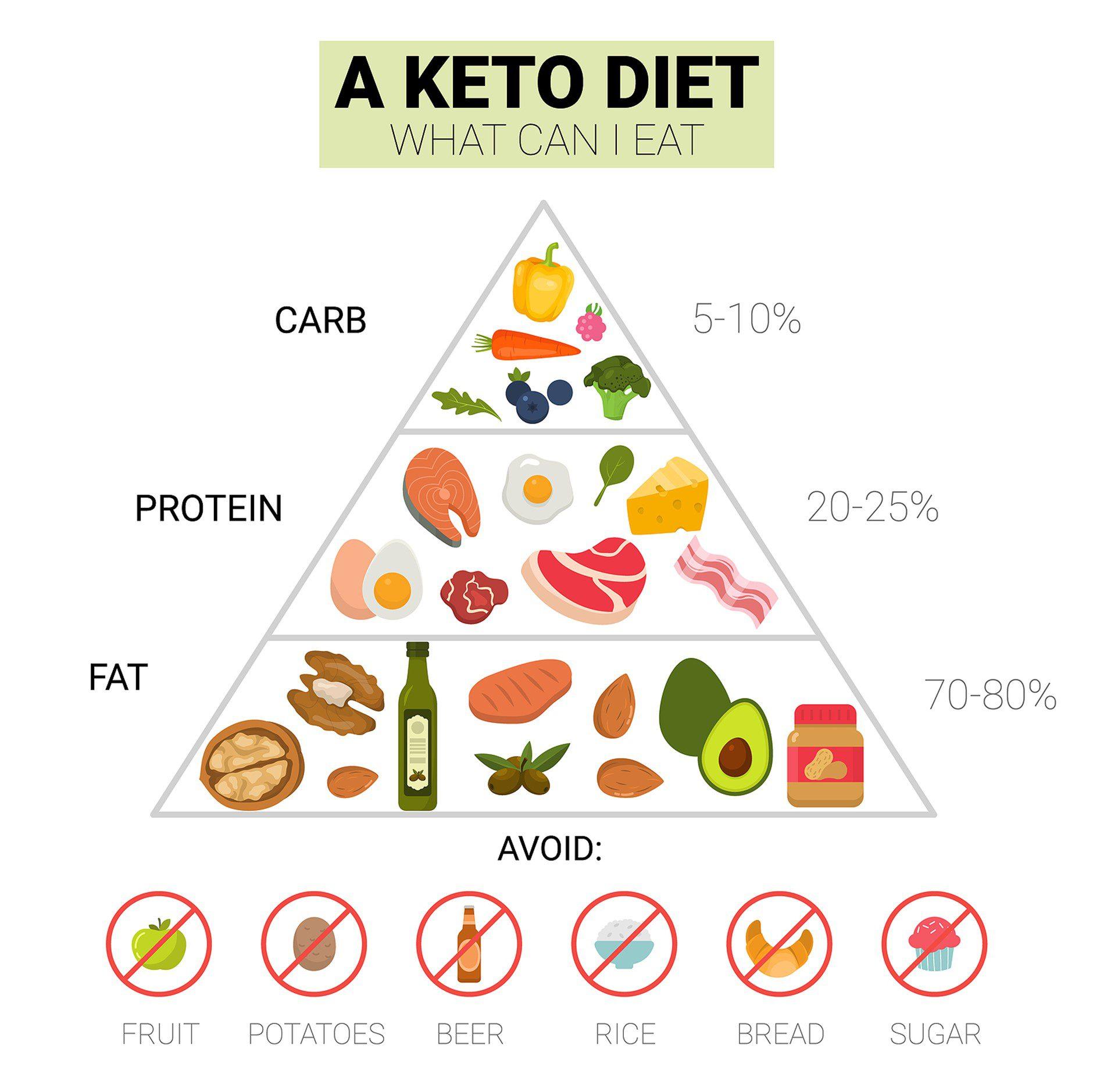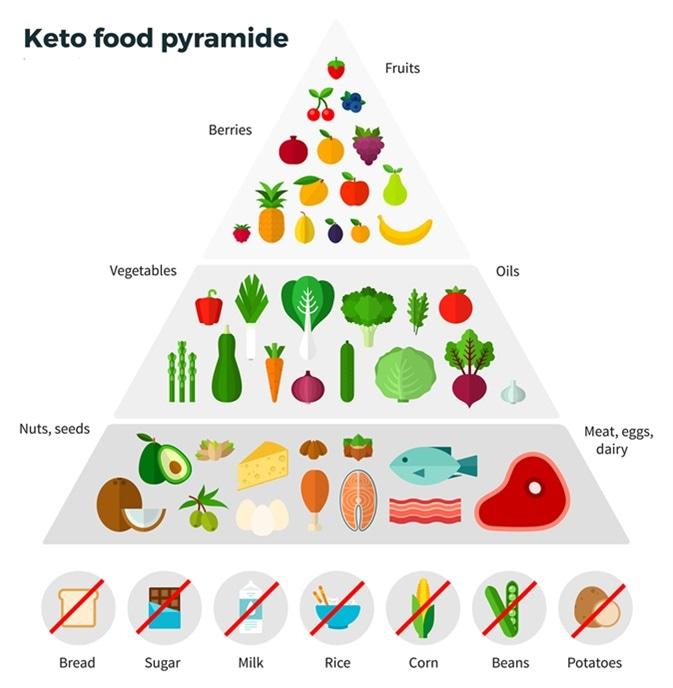Unraveling the enigmatic world of diets, we embark on a quest to uncover the fascinating realm of the ketogenic diet. A spark of curiosity ignites our imagination, as we delve into the realm of low-carb wonders and the waltz of fat-burning miracles. Brace yourselves, for our journey delves into the depths of the ketogenic abyss, exploring its pros, cons, and nutritional considerations. With an unbiased lens, we shall wander through the labyrinthine pathways of this dietary phenomenon, seeking enlightenment and illumination. Join us, as we venture into the captivating universe that is the keto diet – a world of tantalizing possibilities, where science harmonizes with taste and health intertwines with vitality. Come forth, intrepid hearts, and unlock the secrets concealed within the realm of Keto Diet Basics.
The Power of the Keto Diet: Exploring the Pros and Cons
The Keto Diet, short for the ketogenic diet, has gained immense popularity in recent years for its potential to aid in weight loss and improve overall health. Let’s delve into the pros and cons of this unique dietary approach, as well as the nutritional considerations it entails.
Pros of the Keto Diet:
- Weight Loss: The Keto Diet can be highly effective for shedding excess pounds, especially in the initial stages. By limiting carbohydrate intake and increasing fat consumption, the body is forced to burn fat for energy, resulting in a reduced appetite and accelerated fat loss.
- Improved Mental Clarity: Many individuals on the Keto Diet report heightened focus and mental clarity. This could be attributed to the production of ketones, which are an alternative energy source for the brain.
- Lowered Blood Sugar and Insulin Levels: Following a low-carb, high-fat diet like keto has the potential to improve blood sugar control and insulin sensitivity, which may be beneficial for individuals with type 2 diabetes or prediabetes.
Cons of the Keto Diet:
- Initial Side Effects: When transitioning to a keto diet, some people may experience temporary side effects such as fatigue, headaches, and dizziness. These symptoms, often referred to as the “keto flu,” are typically short-lived and can be mitigated by staying well-hydrated and ensuring sufficient electrolyte intake.
- Nutritional Imbalances: Strictly following the Keto Diet could potentially lead to inadequate vitamin and mineral intake since certain food groups are limited or eliminated. It’s crucial to carefully plan meals and consider supplementation when necessary to prevent deficiencies.
- Sustainability: The Keto Diet can be challenging to maintain long-term due to its restrictive nature. It requires careful meal planning, constant monitoring of macronutrient ratios, and may limit social dining experiences. Finding a sustainable approach that works for each individual is vital for long-term success.

Navigating Nutritional Considerations for a Successful Keto Diet
The keto diet has gained immense popularity recently for its potential to aid in weight loss and improve overall health. However, before embarking on this low-carb, high-fat diet, it’s important to understand the pros, cons, and nutritional considerations. Here’s a guide to help you navigate the world of keto and optimize your results.
Pros of the Keto Diet
- Weight Loss: One of the biggest advantages of the keto diet is its effectiveness in promoting weight loss. By restricting carbs and forcing the body to burn fat for fuel, many individuals experience significant weight loss results.
- Improved Mental Clarity: Ketones produced during the diet can provide a steady source of energy to the brain, leading to improved mental focus and clarity.
- Reduced Inflammation: Some studies suggest that the keto diet may help reduce inflammation in the body, potentially benefiting those with inflammatory conditions.
Cons of the Keto Diet
- Keto Flu: When transitioning into ketosis, some individuals may experience symptoms commonly known as keto flu, including fatigue, irritability, and brain fog. These symptoms are usually temporary but can be challenging for some.
- Nutrient Deficiencies: Since the keto diet restricts many food groups that are rich in essential nutrients, there is a risk of deficiencies. It’s crucial to plan meals carefully to ensure you are getting all the necessary vitamins and minerals. Consider incorporating a variety of non-starchy vegetables and supplements if needed.
- Difficulty Sustaining: The strict nature of the keto diet can make it challenging for some individuals to stick with it long-term. Social events and dining out may require careful planning and adjustment, which can be overwhelming for some.
Nutritional Considerations for a Successful Keto Diet
To ensure your success on the keto diet, it’s important to pay attention to your nutritional intake. Here are a few key considerations:
| Consideration | Tips |
|---|---|
| Fat Intake | Include healthy fats such as avocados, nuts, and olive oil in your meals. |
| Protein Intake | Choose high-quality sources of protein like poultry, fish, and tofu. |
| Electrolyte Balance | Ensure sufficient intake of electrolytes through supplements or by adding enough salt, magnesium, and potassium-rich foods to your diet. |
By considering these factors and staying consistent with your keto diet, you can maximize the potential benefits and achieve your health and wellness goals. Remember to consult with a healthcare professional before making any significant changes to your diet.
Unlocking the Secrets to a Balanced and Sustainable Keto Lifestyle
Unleashing the Power of Keto
Embarking on a ketogenic diet can be a transformative journey towards achieving a balanced and sustainable lifestyle. By embracing the principles of this low-carb, high-fat eating plan, individuals can unlock a plethora of health benefits while maintaining a positive relationship with food. However, it is important to explore both the pros and cons, as well as consider crucial nutritional considerations when embarking on the keto adventure.
Firstly, let’s dive into the pros of the keto diet:
- Weight loss: One of the main advantages of keto is its ability to promote effective weight loss by inducing ketosis, a metabolic state in which the body burns fat for fuel instead of carbohydrates.
- Improved mental clarity: Many keto enthusiasts report experiencing a heightened mental focus and clarity, as the brain thrives on ketones – the byproduct of fat breakdown.
- Increased energy: By eliminating blood sugar spikes and crashes associated with high-carb meals, keto provides a sustained source of energy throughout the day.
- Reduced cravings: With a higher fat intake, individuals often feel more satiated, leading to decreased cravings and less mindless snacking.
| Food Group | Examples |
|---|---|
| Proteins | Eggs, chicken breast, salmon |
| Fats | Avocado, olive oil, nuts |
| Vegetables | Broccoli, spinach, kale |
| Dairy | Cheese, butter, heavy cream |
On the flip side, it is vital to acknowledge some potential cons:
- Keto flu: Initially, some individuals may experience symptoms like fatigue, headaches, and irritability as the body adjusts to the new metabolic state.
- Nutritional deficiencies: Restricting carbohydrates can lead to inadequate intake of certain vitamins and minerals, so careful planning is necessary.
- Challenging social situations: Navigating social gatherings and dining out can pose challenges due to the limited availability of keto-friendly options.
To reap the benefits of a balanced and sustainable keto lifestyle, it is crucial to prioritize nutritional considerations. Focusing on sourcing high-quality, nutrient-dense foods that fit within the keto guidelines can help ensure the body receives all the necessary building blocks for optimal health.
Key Takeaways
In a world full of diet trends and weight-loss miracles, the Keto Diet has emerged as a shining star, captivating the health-conscious community with its promises of rapid results and improved vitality. But before we bid adieu, dear reader, let us reflect on the pros, cons, and nutritional considerations of this low-carb, high-fat phenomenon.
Stepping onto the ketogenic path, you are greeted by a parade of potential benefits. Weight loss, enhanced mental clarity, decreased inflammation, and increased energy levels beckon you towards a new journey of wellness. Through the magic of ketosis, your body becomes a fat-burning machine, bidding farewell to its carb-based energy source and transforming itself into a lean, mean, fat-busting powerhouse.
Yet, nestled amidst the allure of this dietary wonderland, cautionary whispers of cons sway through the airwaves. The dreaded “keto flu” may lurk, ready to envelop you in its grip and unleash a storm of headaches, nausea, and fatigue. Your social life may face challenges, as carbohydrates transform into the forbidden fruit, mocking you at every turn. And long-term sustainability? That question lingers like an uninvited guest at a dinner party, demanding an answer before the final curtain falls.
As we navigate the treacherous waters of keto, we must not neglect the nutritional considerations that lie beneath the surface. Vitamins, minerals, and fiber may become scarce as a result of the stringent restrictions imposed by this diet. A kaleidoscope of colorful fruits and vegetables, once the cornerstone of a balanced meal, are now relegated to distant memories, replaced by avocados, butter, and bacon. Oh, the sacrifices one must endure!
And so, as the sun sets on our exploration of the Keto Diet Basics, we bid you farewell, dear reader. Armed with knowledge, you can forge your own path towards the land of ketosis, weighing the pros and cons, and carefully considering the nutritional implications. Remember, every dietary choice is a personal one, and with the right balance, success can be yours.
As we step back into the realm of neutral objectivity, we leave you with a gentle reminder that while the Keto Diet may offer possibilities and transformations, the ultimate decision lies within you. Choose wisely, dear reader, and may your journey lead you to a place of wellness, balance, and enduring health.


